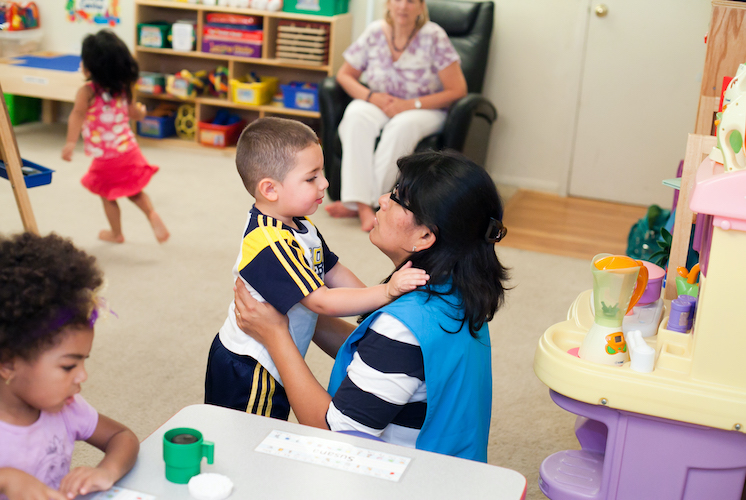 The program's mental health consultant may offer many levels of support (45 CFR §1302.45(b)). For example, they may offer information on typical stages of development and ways to support children during challenging periods of behavior through regularly scheduled professional development opportunities for parents and staff. The mental health professional may also offer information and training on adult mental health and wellness topics, such as managing and reducing stress, mindfulness practices, healthy eating, exercise, and other strategies that promote adult wellness (45 CFR §1302.93(b)).
The program's mental health consultant may offer many levels of support (45 CFR §1302.45(b)). For example, they may offer information on typical stages of development and ways to support children during challenging periods of behavior through regularly scheduled professional development opportunities for parents and staff. The mental health professional may also offer information and training on adult mental health and wellness topics, such as managing and reducing stress, mindfulness practices, healthy eating, exercise, and other strategies that promote adult wellness (45 CFR §1302.93(b)).
Mental health consultants might observe group care and socialization settings and have conversations with parents, teachers, family child care providers, and home visitors when a child's behavior is confusing or of particular concern. The consultant can also help staff and families access mental health interventions in the community, such as direct counseling, if needed. When distressing events happen within a program (e.g., the death of a staff member) or a community (e.g., natural disasters; violent events) that adversely affect children's behaviors, the mental health consultant can work with the education manager and other program leaders to address issues that arise and locate relevant community resources (45 CFR §1302.45(b)(4–5)).
Programs use a variety of models for mental health consultation. Some have a full- or part-time mental health consultant on staff, while some contract for consultation. Many programs report that having the consultant present at the program can reduce the stigma associated with referrals to mental health clinics.
Read more:
Resource Type: Article
National Centers: Early Childhood Development, Teaching and Learning
Last Updated: October 24, 2020
